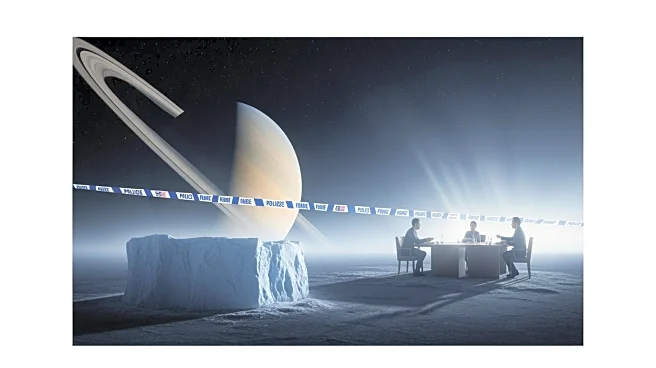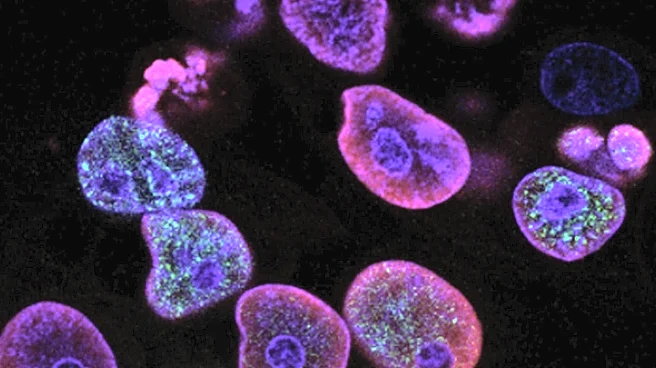What's Happening?
NASA's Cassini mission has provided new insights into the potential habitability of Saturn's moon Enceladus. According to a study published in the Science Advances journal, Enceladus may be capable of supporting life due to the presence of water, heat,
and essential chemicals like phosphorus and hydrocarbons. The Cassini spacecraft first identified Enceladus as having an active ocean in 2005, when it detected large plumes of water vapor emanating from the moon's surface. Recent findings indicate that heat is being emitted from both the north and south poles of Enceladus, suggesting a stable environment that could support life. Researchers from the University of Oxford, the Southwest Research Institute, and the Planetary Science Institute have highlighted the moon's global, salty subsurface ocean as a key factor in its potential habitability.
Why It's Important?
The discovery of potentially habitable conditions on Enceladus is significant for the search for extraterrestrial life. As one of Saturn's 274 moons, Enceladus stands out due to its active geological features and subsurface ocean, which could provide the necessary conditions for life to evolve. This finding enhances our understanding of where life might exist beyond Earth and could influence future space exploration missions. The presence of heat and essential chemicals suggests that Enceladus has a balanced energy system, maintained by tidal heating from Saturn's gravitational forces. This balance is crucial for sustaining a stable environment that could support life, making Enceladus a prime target for further study.
What's Next?
Further research is needed to determine the age of Enceladus's subsurface ocean and whether it has existed long enough to support the development of life. Scientists aim to explore the moon's geological activity and energy balance in greater detail to understand its potential for habitability. Future missions may focus on collecting more data from Enceladus to assess its environment and the possibility of life. The findings from this study could guide NASA and other space agencies in prioritizing Enceladus for exploration, potentially leading to new discoveries about life beyond Earth.
Beyond the Headlines
The implications of finding life-supporting conditions on Enceladus extend beyond scientific curiosity. It raises ethical and philosophical questions about humanity's place in the universe and the potential for life elsewhere. The study of Enceladus could also contribute to our understanding of planetary systems and the conditions necessary for life, influencing how we approach the search for extraterrestrial life in the future.














